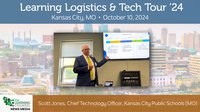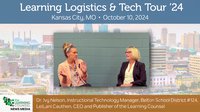In the future, super-actualized software systems will provide teachers with all the information they need to supervise their students individually with crafted learning programs.
As mentioned earlier in the discussion of the Experience Economy, mankind is bent on conquering the next major aspect of the universe: time.
Now we’re in the Experience Economy, and top companies are getting greater shares of interest and displacing old-line companies not built for this new value system. Nearly all of the companies in the Fortune 500 have some time savings in their offerings or experiential aspects or both.
It’s fairly self-evident that to live at all is to strive for experiences, but in past eras, having a great experience was a luxury, a sort of vacation from normalcy, not a continuous feature. Living was regulated by more basic strivings. Basics are well managed today in the advanced nations. Things not so basic are even well managed. Now we are striving to manage the things that are harder to manage. And managing people, particularly children, in the direction we will them to go without over-managing them into suppressed intellect or passion for life is hard.
Technology has given us more than we have recognized before – a shift in the basis of our whole economy, and a problem, if we are not educating in the direction of relevancy for the individual in that economy.
A focus on quality time, real experiences that we hope are better than others are having, is the new value paradigm. It is what we will compete for and sacrifice other things to get and what has been building our largest commercial interests, such as social media sites that give us the experience of greater circles of friends and online retail that saves us having to physically drive anywhere. Now that the human collective has veered into this new value paradigm, the focus is on experience, rather than ownership of space, consumption of material things, or seeking only wealth. The repercussions are vast for all institutions and heavily implicate teaching and learning.
I think this means a vastly expanded conceptualization of education because learning and knowledge itself is an experiential journey. Learning is no longer just a preparatory step towards something; it is the something. It is the new commodity, the desirable, because it is both a thing of experience and a point of leverage of one’s time in this Age. Smarter is considered to also be faster, which obtains more leisure, which is more experience. That equation is irresistible. Commercial and institutional ingenuity in the digital packaging of knowledge could be limitlessly remunerative.
The trouble is the present American education system is based on a system of extremely time intensive memorization and forgetting, not feats of creativity and intelligence. It is not experiential, really. It is oriented at more generalist raw survival, “readin’, writin’, ‘rithmetic,”and histories and basic science, without a great deal of personal exploration to arrive at a specialty oriented to skill or efficiency. The present system spews out a mass of generalists who are constructed for the Industrial Age to live narrowly cast in menial labor-intensive tasks, and finally arrive, after years of toil, in a final few years of exhausted retirement.
This generation wants to live and not have to work as incredibly arduously as prior generations – and probably they don’t have to. Already companies are experimenting with “5-hour work days” having recognized that technological work, now a significant part of the economy, is more mentally challenging than physical and that people are really “on” for really only about that much time out of an 8-hour day anyway.1
What educational institutions need to produce now are students who have interest in the experiential economy, who are super-attuned to time management skills and creative contribution.2
The Shift
With the advent of a great deal of technology, education could now enable a journey of effort accompanied by real enjoyable rewards all along the way – a life of experiences and real contributions, probably in a specialty. You could argue that people now want this not just because our forebearers may have had little enjoyment, but because right here and now so much of existence prior to adulthood has been forced to be devoid of anything dynamic. One school district made national news recently and caused a fight with their students’ parents when they canceled playground time in an effort to keep primary grade-schoolers focused on onerous standards work. Another let individual teachers fight with parents about what food was acceptable for them to send in their children’s lunches. Chocolate chips were not “healthy choices” inside granola bars.3
Education has given us a lot of non-experience. It has been way more effort and a lot less fun – perhaps even less than was enjoyed in our great-great grandparents age of the one-room schoolhouse. At least the fun then was fun on the playground, where you could climb trees, catch lizards, and skin your knee or elbows in a wrestling match or kickball game. You could potentially experience genuine interaction, and because of that, genuine joy. And every kid got a personalized education because there were a handful of kids. Things were real.
What the current youth generation seems to want the most is authentic experience. They will use social media endlessly to discuss anything, but the depth of what they can extrapolate imaginatively is at issue. They are experientially poor, having less and less “real” interaction. For example, they will take a picture of their well-dressed frozen yogurt and Tweet the flavor they selected, but they won’t hypothesize why yogurt doesn’t freeze in the smoothie machine, and perhaps ask questions like, “Is this stuff called ‘propylene glycol’ in the ingredients good for me to eat or just good to help yogurt machines not freeze? And why is it labeled ‘food grade’ when the same-named stuff can be seen on airport tarmacs being used to de-ice airplanes? Perhaps this stuff is not good for a human body? And perhaps we should investigate why it’s okay to put it in our food.” That sort of authentic inquisitiveness has been being lost to generations who have been targets of information ingestion rather than creators and makers.
The current crop of economically disadvantaged youth need the education barrier removed for real so they are not superficially experiencing learning. Without authentic, aware experience, millions of youth will be marginalized, and they know it – victims of place and time, just when the Age of Experience is starting.
Youth who have been weaned on the highly interactive video games of today are already questioning why their homework is so devoid of animation, depictions, and intelligent tangents they could explore off to the side like game-world levels and alternate modes. Because of exposure to such rich media, they see limitations on the delivery mechanisms of their learning, which are mostly flat text or simple video – and video that mostly captures a talking head lecturing. They tune out even while teachers think it’s so cool that the whole class is using an app together, as if this is novel.
A digital re-direction to experiential education can untether any and all students from “place” and allow them to take charge of their own des- tinies, and additionally take the added time out of learning relevant skills. The problem with the economy where education is concerned perhaps isn’t a problem at all – it’s just that nearly every industry is moving into the Experience Economy while the education sector has largely been left behind. It has instead been filled with new requirements for endless testing and accommodations while not being reinvented to discard some of the earlier, now non-relevant things.
Educators have also been distracted from demanding highly engaging courseware into an “everything should be free” argument that is giving schools millions of Open Education Resources (OER) that are primarily non-animated, non-designed learning objects that do little to deliver experience because they are mostly merely documents, videos, and links. The digital experience is not what it could be.
Airbnb and Uber are both prime examples of a digital sharp-turn from the prior social and business norms because of the expectations for experience. It is easier to use Uber than it is a regular cab in many instances. It is more authentic and memorable to temporarily rent a house via Airbnb than a hotel. It’s more local-flavored, typically, and gives access to public spaces in a different, more direct way than hotels, whose public spaces are created to be internal, such as lobbies or bars, with higher formality and less hominess. Riding in Uber means you already have your credit card loaded into the app, and you don’t have to dig in to your bags to find your money or slow down at the end of the trip for the transaction. You just order it on your app, jump in, and jump out. The simplicity of this is far from what students experience in interacting with institutions.
Seeking simplicity and authenticity without pretentiousness is a hallmark of the new age. Schools who specialize in authoritarian and pretentious “we’re-the-only-source” and “without- us-you-don’t-get-a-degree-or-diploma-or-grade,” are already secretly shunned because they are inter- fering with the idea of just getting on with a rich experience of life. Toll-takers like the requirements, the forced human interaction mimicking office visits and waiting in lines of old for any busi- ness, and testing transactions may seem essential, but when technology makes them invisible and seamless, learners will have a choice and a return of their desired time. They will judge an institution by how comfortable and well-managed they feel in the overall experience of learning.
Accomplishing greater efficiency of time in learning, of authentic and not superficial experi- ence, is the new level for schools to reach. To do it, they need to be maestros of digital, not dabblers.
1 https://en.wikipedia.org/wiki/The_4-Hour_Workweek
2 UK Commission for Employment and Skills, “The Future of Work, Jobs & Skills in 2030.” Feb 2014, https://www.gov.uk/government/ publications/jobs-and-skills-in-2030
3 Lauren Levy, The Reason School Lunches Were Confiscated From Children Has Parents Infuriated, October 3, 2016, http://www. popsugar.com/moms/Teachers-Taking-Away-School-Lunches-Arent- Healthy-42499265
4Albert Boswijk, Ed Peelan, and Steven Olthof, Economy of Experiences, http://www.experience-economy.com/page/view/37/our-book (2012)











